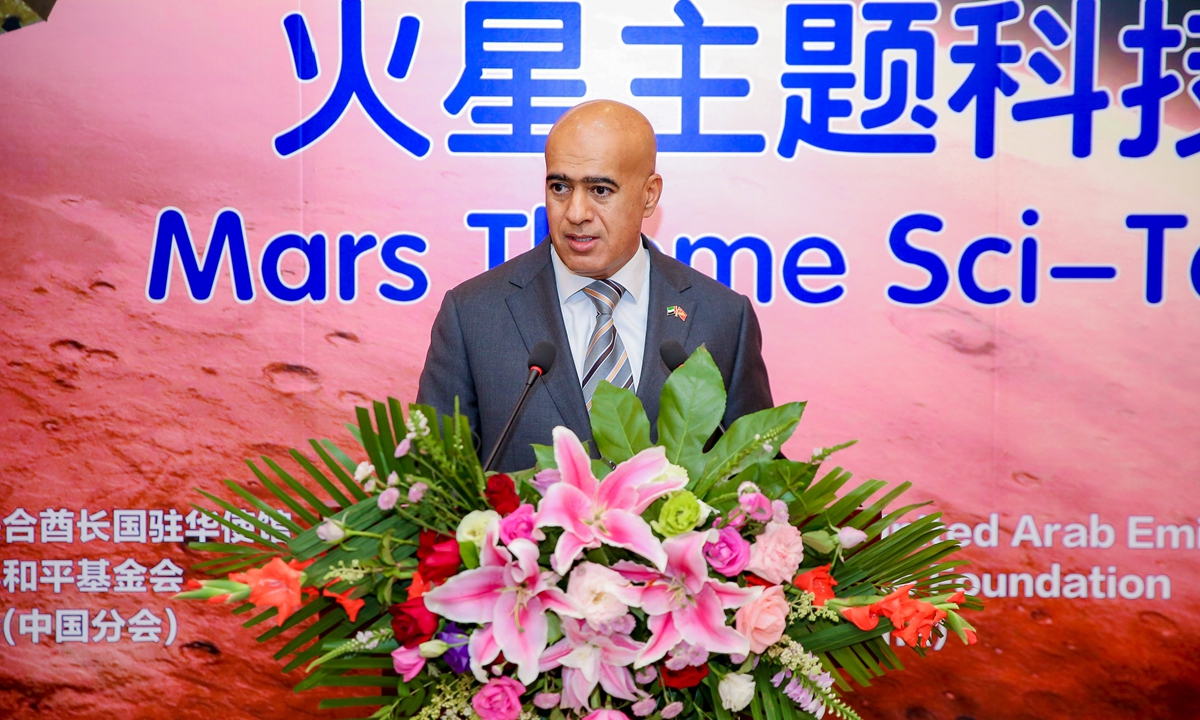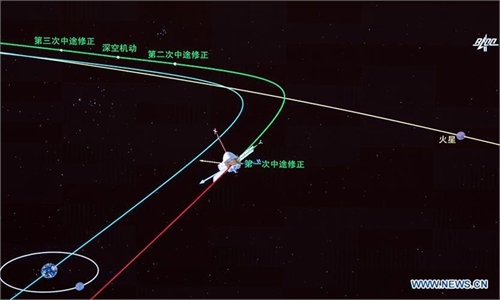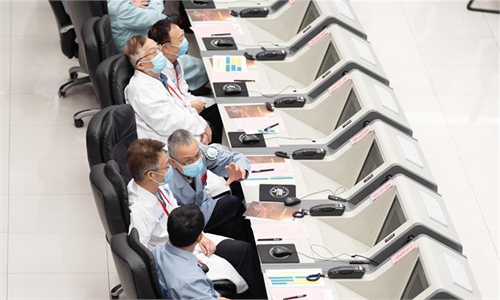
The UAE Ambassador to China Ali Obaid Al Dhaheri speaks on Thursday at an event themed on Mars exploration. Photo: Mars Theme Sci-tech Salon
After China and the United Arab Emirates launched probes to Mars this summer, a possible living space for mankind, the UAE Ambassador to China said Thursday he sees great potential for cooperation, as China and the UAE have moved humanity to further levels of advancement.
The UAE and China has grown from developing to mature economies, and in parallel the two nations are moving up to space exploration, which provides possibilities for the two to work together, Ali Obaid Al Dhaheri told the Global Times in an exclusive interview on Thursday, at an event on Mars exploration.
The ambassador told the Global Times during a recent visit to the Beijing-based China Academy of Space Technology (CAST) that he had a chance to see first-hand the work and simulations for a Mars landing by China, and sees "a number of opportunities and possibilities for the UAE space agency to work with the CAST team in the future."
China launched the Mars probe on July 23, designed to complete orbiting, landing and roving in one mission, taking the first step in its planetary exploration of the solar system, while the UAE on July 20 successfully launched its first Mars orbiter, the Hope Probe.
In July, NASA also launched its Mars rover Perseverance to search for signs of ancient life, the third Mars exploration of the international community after China and the UAE.
As the first interplanetary mission from the Arab world, the ambassador believes their mission will reignite the Arab world's enthusiasm in science, and more engagement with the solar system.
The vision on Mars is long-term, and bringing back data from the Martian atmosphere will partially help to understand how people can live on the planet, the ambassador said.
With the Mars Hope mission, the UAE has a platform for the Mars 2117 Program, part of the UAE National Space Program, which will enable the UAE to build a Mars Science City and explore Mars to address the challenges of food, water and energy scarcity on Earth, he noted.
With more countries carrying out Mars missions, Al Dhaheri said that the UAE is focused on its own development and does not see itself as involved in a space competition. The motivation for the UAE in its Mars probe is scientific research, and to diversify its economy that relies heavily on oil, he noted.
Li Ruohong, Chairman of the China World Peace Foundation, also told the Global Times that at the time of great divergence, arm race and regional conflict sweep around the world, the exploration of Mars opens a new chapter for countries to work together. "No country can survive in the Mars exploration without the supply chain linking various countries."
The launch of the Mars probe empowers the UAE and the Arab world to contribute to humanity's efforts on the journey to Mars, the ambassador said, noting China and the UAE could find collaborative opportunities as both work to move humanity ahead to further levels of advancement.
At the Thursday event themed on how to peacefully explore the red planet, ambassadors and diplomats from countries including China, the UAE, Namibia, Mali, Nepal, Uruguay,Tunisia and Azerbaijan signed an initiative on Peaceful Space Exploration.
They advocate the creation of a harmonious, shared and safe space order, to cherish space resources and promote peace.
To reach the ultimate goal of landing on Mars and eventually surviving on the red planet will take at least 100 years, said Ling Ziyan, the PR director of the Mars Society in China, noting Mars fans expect countries to share more to reach the potential of living on the planet.



